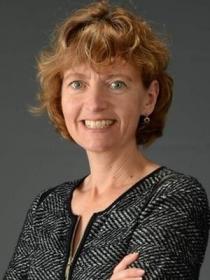Chapter Spotlight: North Carolina SSN Focuses on Policy at the Local Level
“While there’s a lot published about how to formally advocate at a state or federal level, it’s not always as clear how to do that at a local level.” – Sarah Verbiest, North Carolina SSN chapter leader
Researchers often invest months or even years into their projects, but what happens when the intellectual labor is done and key findings need to be disseminated beyond the ivory tower? North Carolina SSN recognizes that it can be daunting for researchers to know where to begin when sharing their work with policymakers, and offers valuable suggestions for scholars interested in doing so in their own backyard.
To provide the best tools, guidance, and support for connecting with local policymakers, North Carolina SSN organized a Connecting Scholars and Local Policymakers workshop this past November. The event featured two local policymakers: Durham City Councilmember Jillian Johnson and Carrboro Town Councilmember Damon Seils. Joining them were Professor Frank Baumgartner from the Political Science Department at UNC Chapel Hill and Dr. Dore LaForett of the Frank Porter Graham Child Development Institute at UNC Chapel Hill – both of whom have served on local boards and have used their research to inform policy.
Scholars from a wide array of disciplines attended the virtual event, which focused on topics such as: why researchers should pay attention to local elections, opportunities to share research with local officials, strategies for building relationships with local policymakers, and ways to engage in local policymaking through committee/board appointments.

According to chapter leader Sarah Verbiest, “While there’s a lot published about how to formally advocate at a state or federal level, it’s not always as clear how to do that at a local level.” She explained that directly hearing from and speaking with local policymakers helps academics – especially emerging scholars – navigate the right steps to take.
Verbiest emphasized the meaningful conversations that ensued between the attending scholars and the featured guests during the Q&A at the end of the panel, and the “gold nuggets” of information that were shared as a result. One of those gold nuggets was the suggestion for scholars to always keep an eye on whether something is happening in their community related to their area of work (such as housing or the environment) and to immediately reach out to local policymakers, whose “role it is to listen.”
And the best place to find those eager to lend an ear? Boards and commissions, which can make decisions or offer recommendations on a wide range of local issues. The council members explained how to be appointed to one while also making clear that scholars can attend meetings without having to be on a committee.
Attending those meetings creates excellent opportunities for scholars to find out exactly what parts of their research would be most beneficial to policymakers, according to council members Jillian Johnson and Damon Seils. Verbiest mentioned:
“Both of our council members noted that when working on a particular policy issue, they don’t have time to do a lot of research or may not have access to what they need."
She also added that attending these meetings can then lead to one-on-one meetings with policymakers, who are often happy to grab a cup of coffee with a scholar whose work they’re interested in.
North Carolina SSN plans to continue developing relationships with local policymakers. The chapter leaders are excited to see their members building connections with local government and giving life to their research in impactful new ways.
Learn more about the North Carolina chapter here.
